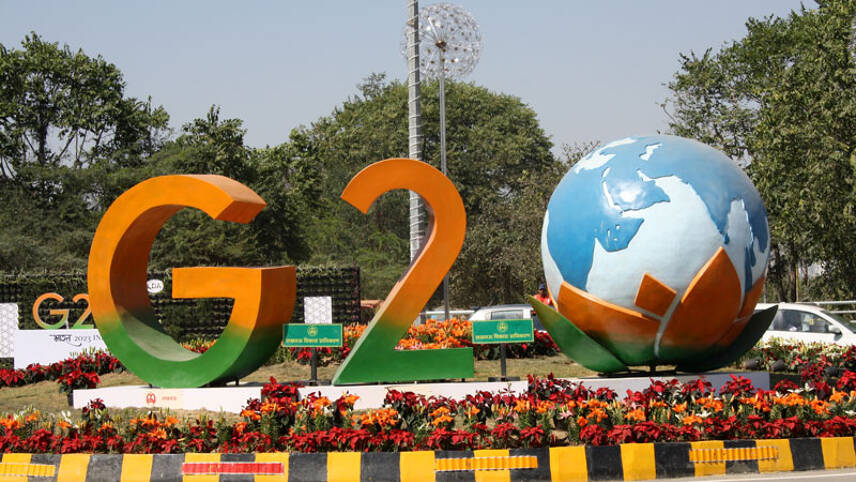Register for free and continue reading
Join our growing army of changemakers and get unlimited access to our premium content

The Clean Energy Ministerial meeting in Goa was hosted by India, the current holder of the G20 presidency. Co-hosting important dialogues on-site were the COP28 Presidency; the International Energy Agency (IEA); IRENA and the UN’s climate change arm, UNFCCC.
The aim of the meeting, the first in a series ahead of COP28 in Dubai this winter, was to firm up international agreements on shared goals and plans for decarbonising energy systems while also meeting growing electricity demands.
Ahead of the meeting, the COP28 presidency adopted several of the IEA’s recommendations as key aims, including a doubling of energy efficiency improvement rates and a trebling of renewable energy capacity. The IEA recommends these milestones are met by 2030.
While the energy efficiency goal was widely supported, observers noted disagreements over the renewable energy goal. Concerns were raised by some nations about improving grid infrastructure to tight deadlines. Issues regarding supply chain disruptions, resulting from factors like high energy prices for manufacturers, Covid-19 in China and disruption from the Russia-Ukraine war, were also floated.
India, as meeting host, had been pushing for Ministers to agree on the need to phase down fossil fuel production and use. This position was accepted by the COP28 presidency this summer, despite the UAE’s push back at COP27, where it argued that carbon capture should be an alternative to transitioning to cleaner energy for fossil fuel exporters.
Observers noted that Ministers bickered over the wording of the final agreement on fossil fuels. Some nations wanted a caveat to differentiate “unabated” use of fossil fuels and the use of fuels with measures like energy efficiency and carbon capture.
There was no communique resulting from the meeting. The publication of a communique requires agreement from all parties on all paragraphs. Instead, an outcome document and chair summary was released.
This document reaffirms a “strengthening” of the “full and effective implementation of the Paris Agreement”, accounting for the “best available science”.
On fossil fuels, it states that all parties acknowledge the importance to “phase down unabated fossil fuels, in line with different national circumstances”. It states that fossil fuels presently “play a significant role in the global energy mix, eradication of poverty and meeting growing energy demand”. With this in mind, nations will need to rapidly deploy clean alternatives.
‘Very weak tea’
There is still time for energy ministers to produce a pre-COP28 agreement. The next big international meeting is tabled for September in the US.
Nonetheless, there is disappointment across the green economy regarding this weekend’s failure to set a clear, shared direction of travel on fossil fuels.
IRENA’s director-general Francesco La Camera said: Our collective promise was to secure a climate-safe existence for current and future generations. We simply cannot continue with incremental changes. There is no time for a new energy system to evolve gradually over centuries, as was the case for the fossil fuel-based system. IRENA centres the renewables-based energy transition as the most realistic climate solution and calls for a tripling of annual renewable energy additions to keep global warming within 1.5C.”
E3G’s senior associate Alden Meyer urged the Indian G20 presidency to continue pushing for its initial, stronger position on 2030 renewables and fossil fuels goals.
Meyer said: “With temperature records being set daily around the world and the impacts of climate change spiralling out of control, the world needed to hear a clarion call to action from the G20 energy ministers meeting that just wrapped up in Goa
“Instead, what we got was very weak tea indeed, with the failure to set strong goals and implementation plans for at least tripling deployed renewable energy capacity worldwide by 2030 and sharp divisions on display around the need for a fair, fast, and equitable transition away from fossil fuels.”


Could it have anything to do with the fact that politicians do not, in general, come with a scientific background; perhaps are not even particularly science literate?